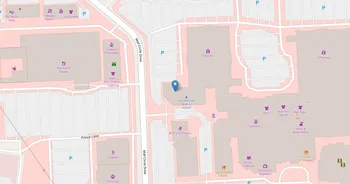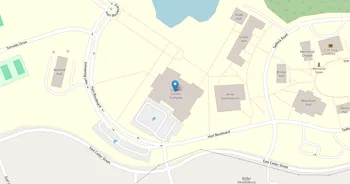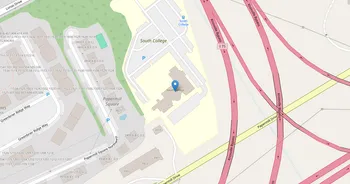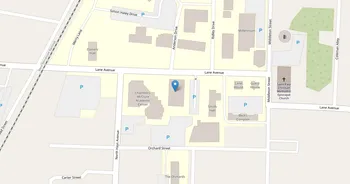Johnson University (JU) : Overview, Courses, Scholarships & Rankings
About Johnson University
Perched above a bend in the French Broad River, Johnson University offers a quiet, close-knit campus near Knoxville's energy. The university is known for faith-shaped academics that blend classroom learning with service and leadership. Students explore the humanities, social sciences, business, education, counseling, and ministry, with mentoring and practical projects.
Facilities include a light-filled library, tech-enabled classrooms, labs, and a busy rec center, plus tutoring, writing help, counseling, and career coaching. Campus life feels relational, with weekly chapel, service projects, intramurals, outdoor time, and coffeehouse nights. Career prep grows through internships and connections with churches, schools, nonprofits, and community agencies. And Knoxville brings a lively arts scene, river views, and quick trips to mountain trails.
Key Institutional Details
Contact & Profile
Academic & Institutional
Academic Programs & Fields of Study
Johnson University (JU) offers 34 degree programs across 16 major academic fields, graduating approximately 398 students annually. The most popular fields by graduate volume are Theology (6 programs, 222 graduates), Education (8 programs, 42 graduates), Philosophy (2 programs, 30 graduates), Business (3 programs, 30 graduates) and Psychology (1 programs, 20 graduates). Explore program details, award levels, and graduate demographics below.
Theology (6 programs, 222 graduates)
Theological Studies, Ministry Preparation and Religious Leadership
| Program Name | Graduates | Gender Distribution | Award Levels | CIP Code |
|---|---|---|---|---|
| Biblical Studies | 152 |
|
Associate's
Bachelor's
Master's
|
39.0201 |
| Divinity and Ministry | 53 |
|
Associate's
Bachelor's
Master's
|
39.0602 |
| Missionary Studies | 7 |
|
Bachelor's
Master's
|
39.0301 |
| Pastoral Counseling | 6 |
|
Bachelor's
|
39.0701 |
| Sacred Music | 3 |
|
Bachelor's
|
39.0501 |
| Youth Ministry | 1 |
|
Bachelor's
|
39.0702 |
Education (8 programs, 42 graduates)
Educational Sciences, Teaching Methods and Pedagogy
| Program Name | Graduates | Gender Distribution | Award Levels | CIP Code |
|---|---|---|---|---|
| Multiple Level Teacher Education | 14 |
|
Master's
|
13.1206 |
| Elementary Education | 10 |
|
Bachelor's
|
13.1202 |
| Secondary Education and Teaching | 5 |
|
Master's
|
13.1205 |
| Instructional Technology | 4 |
|
Master's
|
13.0501 |
| Early Childhood Education | 4 |
|
Bachelor's
|
13.1210 |
| Physical Education Teaching and Coaching | 2 |
|
Bachelor's
|
13.1314 |
| English as a Second Language (ESL) Teaching | 2 |
|
Bachelor's
|
13.1401 |
| Special Education Teaching | 1 |
|
Bachelor's
|
13.1001 |
Philosophy (2 programs, 30 graduates)
Philosophical Studies, Ethics and Religious Thought
| Program Name | Graduates | Gender Distribution | Award Levels | CIP Code |
|---|---|---|---|---|
| Applied Ethics | 29 |
|
Master's
|
38.0104 |
| Religious Studies | 1 |
|
Bachelor's
|
38.0201 |
Business (3 programs, 30 graduates)
Business Administration, Marketing and Entrepreneurship
| Program Name | Graduates | Gender Distribution | Award Levels | CIP Code |
|---|---|---|---|---|
| Business Administration and Management | 21 |
|
Associate's
Bachelor's
Master's
|
52.0201 |
| Organizational Leadership | 8 |
|
Doctorate (R)
|
52.0213 |
| Nonprofit and Organizational Management | 1 |
|
Bachelor's
|
52.0206 |
Psychology (1 programs, 20 graduates)
Psychological Sciences, Mental Health and Behavioral Studies
| Program Name | Graduates | Gender Distribution | Award Levels | CIP Code |
|---|---|---|---|---|
| General Psychology | 20 |
|
Associate's
Bachelor's
|
42.0101 |
Health (2 programs, 14 graduates)
Healthcare Professions, Medical Sciences and Clinical Practice
| Program Name | Graduates | Gender Distribution | Award Levels | CIP Code |
|---|---|---|---|---|
| Mental Health Counseling | 10 |
|
Master's
|
51.1508 |
| Pre-Nursing Studies | 4 |
|
Associate's
|
51.1105 |
Kinesiology (1 programs, 9 graduates)
Exercise Science, Sports Medicine and Physical Recreation
| Program Name | Graduates | Gender Distribution | Award Levels | CIP Code |
|---|---|---|---|---|
| Sports, Kinesiology, and Physical Education | 9 |
|
Associate's
Bachelor's
|
31.0501 |
Arts (1 programs, 8 graduates)
Fine Arts, Design Studies and Creative Performance
| Program Name | Graduates | Gender Distribution | Award Levels | CIP Code |
|---|---|---|---|---|
| Digital Arts | 8 |
|
Bachelor's
|
50.0102 |
Human Sciences (1 programs, 6 graduates)
Family Studies, Consumer Sciences and Human Development
| Program Name | Graduates | Gender Distribution | Award Levels | CIP Code |
|---|---|---|---|---|
| Family and Community Services | 6 |
|
Bachelor's
|
19.0707 |
Communication (3 programs, 5 graduates)
Media Communications, Journalism and Public Relations
| Program Name | Graduates | Gender Distribution | Award Levels | CIP Code |
|---|---|---|---|---|
| Mass Communication and Media Studies | 2 |
|
Associate's
Bachelor's
|
09.0102 |
| Public Relations and Advertising | 2 |
|
Bachelor's
|
09.0900 |
| Broadcast Journalism | 1 |
|
Bachelor's
|
09.0402 |
Admission Requirements & Test Scores
Comprehensive overview of admission criteria, standardized test score ranges, and application requirements for prospective students at Johnson University (JU).
Application Requirements
Data based on IPEDS for 2022-2023 academic year. Test score ranges represent the middle 50% of admitted students (25th-75th percentile). Requirements may vary by program.
Tuition, Fees & Estimated Costs
Overview of tuition rates, housing, and other annual education expenses for undergraduate and graduate students
Financial Aid & Student Support
Summary of scholarships, grants, student loans, and financial aid statistics for undergraduate students
Student Success Metrics
Graduation rates and post-graduation earnings to help assess student outcomes and long-term value of education.
Loan Burden & Repayment Outcomes
Breakdown of loan repayment rates and student debt levels by income and dependency status.
Frequently Asked Questions
Find answers to the most common questions about Johnson University (JU)
How much does it cost to attend Johnson University (JU)?
The annual tuition at Johnson University (JU) is $20,318 for in-state students. When including room and board, books, and other expenses, the total estimated cost is approximately $35,002 for in-state students. Additional costs include room and board $9,278 (on) / $11,139 (off) and books and supplies $1,200.
Data based on IPEDS program completions for 2022-2023 academic year. Tuition and cost estimates are approximate and may not include all fees, personal expenses, or transportation costs.
What academic programs and degree levels does Johnson University offer?
Johnson University (JU) offers 34 academic programs across 16 major fields of study, with available degree levels: Associate's, Bachelor's, Postbac Cert., Master's, Post-Master's, Doctorate (Research), Other Award.
Most popular program areas include:
- Theological Studies, Ministry Preparation and Religious Leadership (6 programs)
- Educational Sciences, Teaching Methods and Pedagogy (8 programs)
- Philosophical Studies, Ethics and Religious Thought (2 programs)
- Business Administration, Marketing and Entrepreneurship (3 programs)
- Psychological Sciences, Mental Health and Behavioral Studies (1 programs)
Data based on IPEDS program completions for 2023-2024 academic year. Numbers reflect programs where students graduated, not all offered programs.
What is the acceptance rate for Johnson University?
Johnson University (JU) has an 53.8% acceptance rate and a 55.2% yield rate, making it selective.
Admission statistics breakdown:
- Total applicants: 610
- Students admitted: 328
- Students enrolled: 181
Data based on IPEDS for 2022-2023 academic year. Admission statistics may vary by program and application cycle.
What financial aid and scholarships are available at Johnson University?
Johnson University (JU) provides financial aid to 23% of first-time, full-time students, with average grants of $9,797 and average loans of $7,714.
Average financial aid amounts by type:
- Pell grants: $4,792
- State/Local grants: $6,033
- Institutional grants: $5,274
- Federal loans: $5,411
The university supports 145 students with grants and 83 students with loans annually.
Data based on IPEDS for 2022-2023 academic year. Financial aid amounts and percentages may vary by program, enrollment status, and individual circumstances.
What is the average salary for Johnson University graduates?
Johnson University (JU) graduates earn a median salary of $35,649 after 6 years and $40,596 after 10 years.
The salary range 10 years after graduation spans from $24,899 (25th percentile) to $55,177 (75th percentile), with top earners reaching $58,800 (90th percentile).
Data based on IPEDS for 2022-2023 academic year. Salary data reflects graduates who received federal financial aid (approximately 60% of all graduates). Actual earnings may vary significantly based on program, location, and individual circumstances.
Related Universities




Found something useful? Help others discover it too! Share with friends, on social media, or save for later - every share helps someone find the information they need.